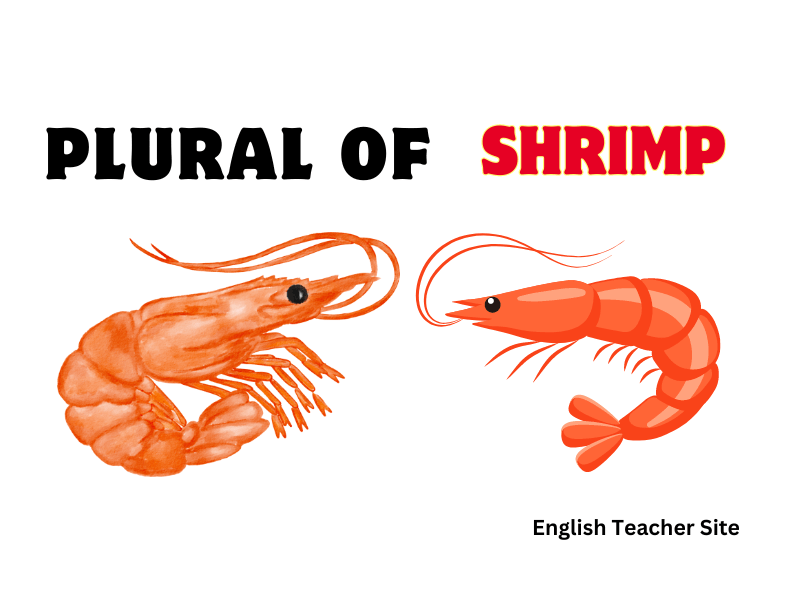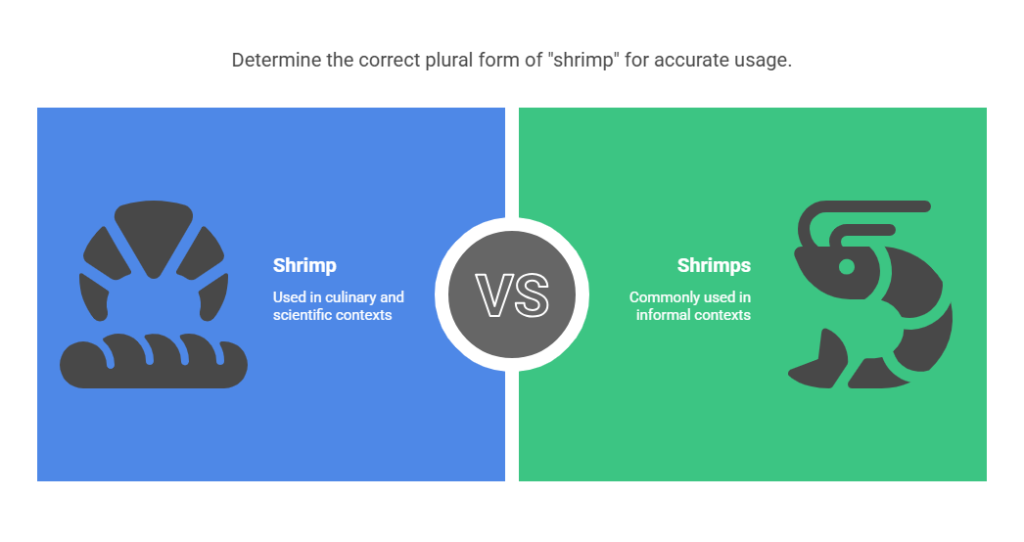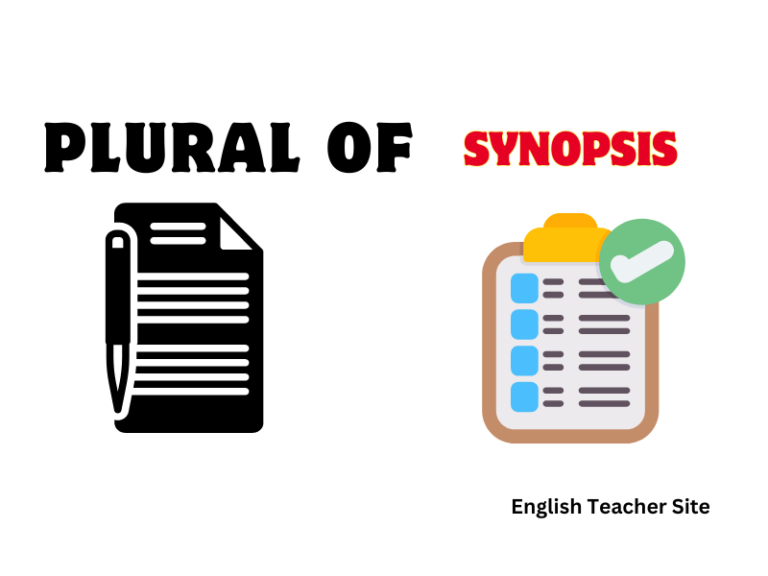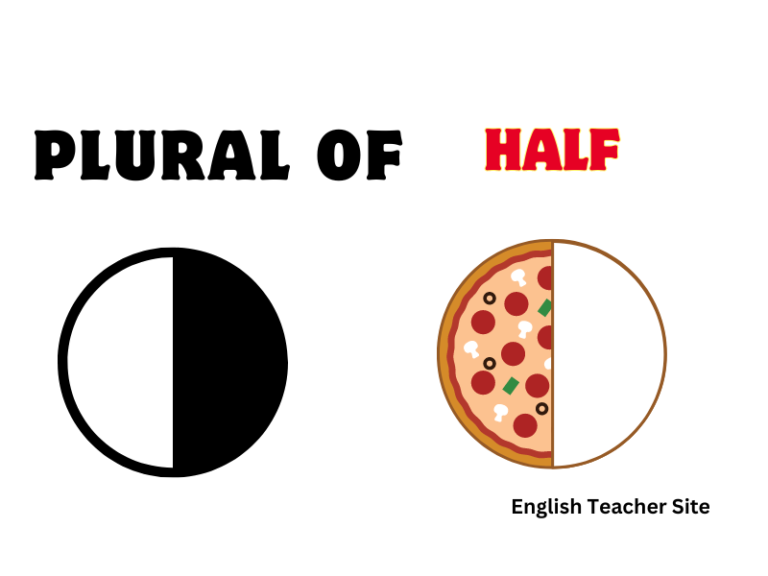Is the Plural of Shrimp Shrimp or Shrimps?

It’s shrimp. And sometimes it’s shrimps. Both are grammatically correct, depending on the context and region. But if you’re aiming for accuracy and clarity, there’s a bit more to the plural of Shrimp.
The Basics: Singular vs. Plural in English
How Plurals Typically Work in English Grammar
In English, plurals usually follow a straightforward rule—add an “s” or “es” to the singular noun. Cat becomes cats. Dish becomes dishes. This predictable pattern makes exceptions stand out.
Common Irregular Plurals That Break the Rules
English is a magpie language, borrowing from everywhere. That’s why irregular plurals exist. Goose becomes geese. Cactus becomes cacti. And some nouns, like fish, stay the same in singular and plural forms. Shrimp falls into this irregular category.
Shrimp or Shrimps: Which One Is Correct?
The Short Answer: Is It Shrimp or Shrimps?
Both are correct, but context matters. In American English, “shrimp” is used as both singular and plural. In British English, “shrimps” is often the plural form, particularly when referring to different kinds or species.
What Major Dictionaries Say About the Plural of Shrimp
Merriam-Webster lists both shrimp and shrimps as acceptable plurals. The Oxford English Dictionary agrees but notes that “shrimps” is typically more common in British usage. Both sources acknowledge the variability, emphasizing regional preference.
Why You’ll See Both Used in Different Places
You’ll encounter “shrimps” in scientific writing or when referring to multiple species. In everyday conversation or culinary contexts, “shrimp” prevails. The choice often hinges on formality, region, and specificity.
Shrimp in British vs. American English
Why Americans Prefer Shrimp and the British Prefer Shrimps
In the United States, simplicity often wins. “Shrimp” serves as both singular and plural. In Britain, “shrimps” is still commonly used, especially when referring to quantities. This divergence reflects broader differences in how the two varieties of English handle pluralization.
How Regional Differences Influence Grammar Choices
The divergence isn’t arbitrary. It’s tied to linguistic history and cultural norms. American English tends to streamline, while British English often preserves older grammatical conventions. Thus, “shrimps” survives across the pond.

When to Use Shrimp and When to Use Shrimps
Talking About Species vs. Talking About Quantity
Use “shrimps” when referring to different species or types. For example, “The bay is home to several shrimps, each with unique characteristics.” When speaking about a collective quantity, “shrimp” is more common: “I ordered grilled shrimp.”
Scientific Contexts Where Shrimps Might Be More Accurate
Biologists and marine scientists often use “shrimps” when describing multiple species. Precision matters in scientific writing, so the plural “shrimps” differentiates between kinds rather than numbers.
Everyday Language: Which One Sounds Right?
In casual conversation, especially in North America, “shrimp” almost always sounds right. “Shrimps” may sound awkward or overly formal unless you’re in a context where specificity is needed.
Examples in Real Life
Famous Quotes and Writings Using Shrimp and Shrimps
Phrases like “plenty of other fish in the sea” often include “shrimp” when adapted: “Plenty of shrimp in the sea.” Literature and poetry rarely use “shrimps,” unless emphasizing variety.
How Restaurants and Seafood Menus Use the Term
Seafood menus overwhelmingly favor “shrimp.” You’ll see listings like “jumbo shrimp cocktail” rather than “jumbo shrimps cocktail.” Simplicity and familiarity guide these choices.
What Experts and Marine Biologists Prefer to Say
Experts lean toward precision. Marine biologists will reference “shrimps” when differentiating species. However, in public-facing communication, even scientists default to “shrimp” for clarity and accessibility.
Common Mistakes People Make
Why Adding an S Isn’t Always Correct
Assuming every noun pluralizes with an “s” is a common mistake. “Shrimps” can feel forced or incorrect in casual speech. It’s essential to consider audience and context before adding that final letter.
How to Avoid Sounding Awkward in Conversation
Stick with “shrimp” in most settings. Unless you’re discussing multiple species or writing for an academic journal, “shrimp” will sound natural and correct.
Easy Rules for Deciding Between Shrimp and Shrimps
- Use “shrimp” for general plural use, especially in American English.
- Opt for “shrimps” when specifying multiple species, often in scientific or British contexts.
- When in doubt, “shrimp” is almost always safe.
FAQs About the Plural of Shrimp
Is Shrimp Ever Wrong?
Rarely. In almost every context, “shrimp” is acceptable. Only when referring to different species might “shrimps” be considered more accurate.
Do Other Sea Creatures Have Weird Plurals Too?
Yes. Fish and fishes follow a similar pattern. “Fish” is the general plural, but “fishes” is used when talking about different species. The same applies to squid, which typically stays “squid,” though some prefer “squids” when describing species diversity.
Should You Correct Someone Who Says Shrimps?
No need. Both are correct. Unless clarity is at stake, it’s often better to focus on the conversation rather than the correction.
Conclusion
Both forms are grammatically sound. Shrimp is universally accepted, while shrimps has specific, mostly scientific, applications. Your choice should depend on audience, purpose, and tone. Whether you’re dining out, writing an article, or explaining marine biodiversity, you now have the knowledge to choose wisely between shrimp and shrimps. Use it confidently.
My name is Khamis Maiouf. I am the creator of the English Teacher Site, dedicated to providing valuable resources and insights for students around the world. With a passion for education and a commitment to helping students enhance their skills, I aim to make English teaching more effective and enjoyable for both educators and students.






